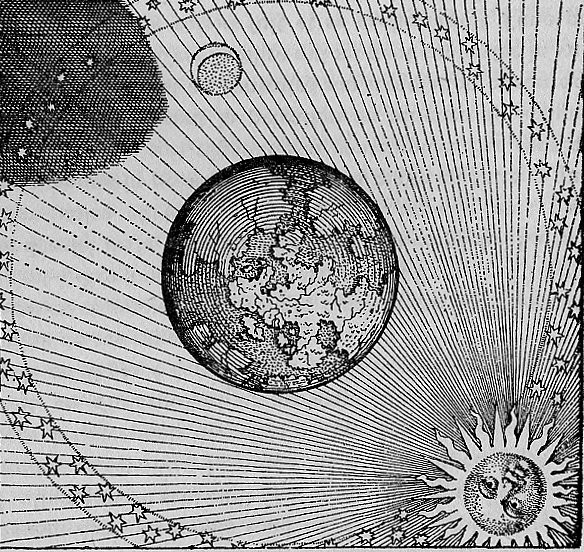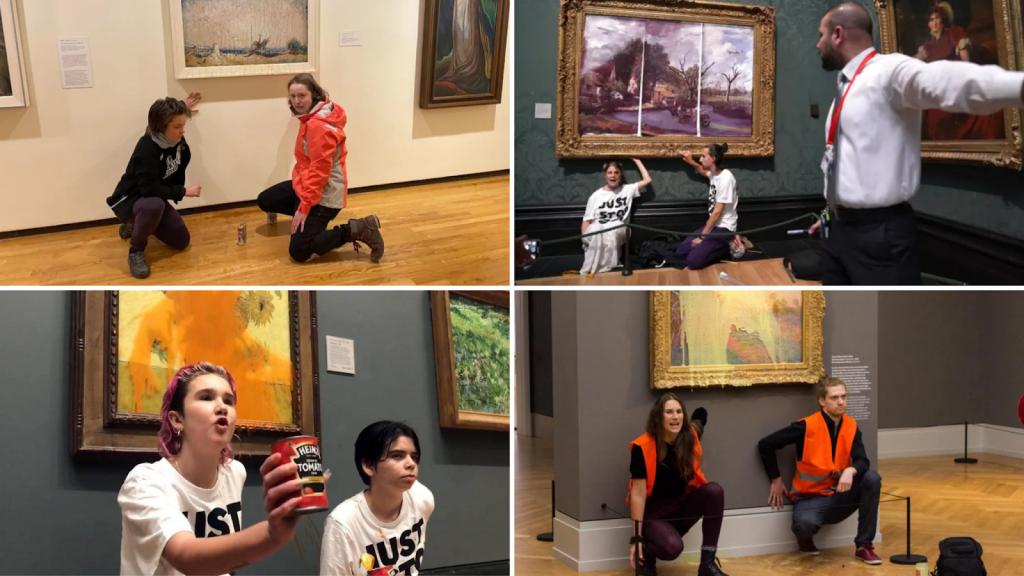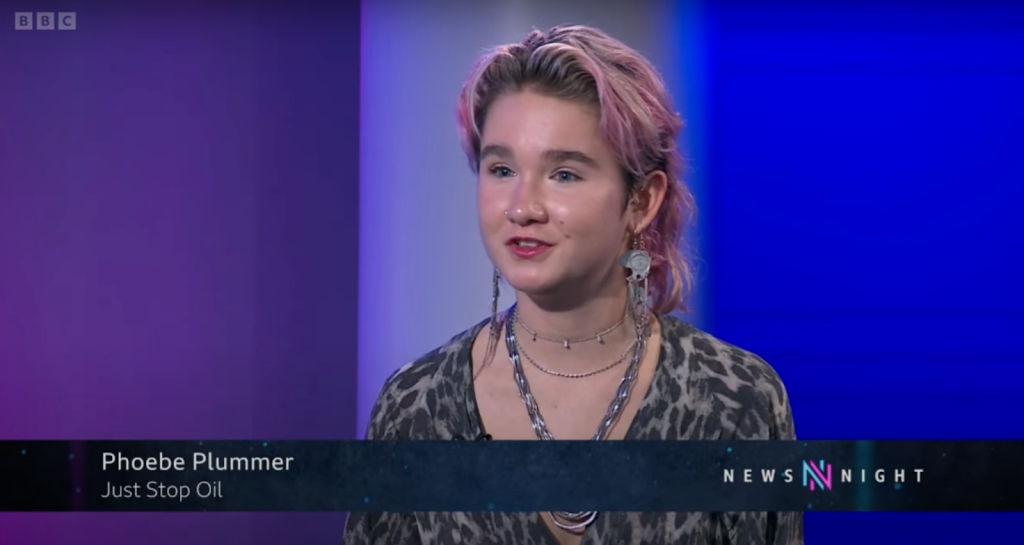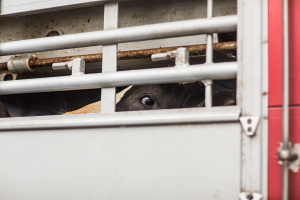
“Emblem 45” by Michael Maier (1617) (Public Domain)
The outrage machine has been out in full force the past several weeks targeting climate activists whose choice of protest consisted of throwing food at various pieces of renowned works of art. The targeted famous paintings ranged from Vincent van Gogh’s ‘The Sower’ to Johannes Vermeer’s ‘Girl with a Pearl Earring.’
While these incidents were disruptive — well, symbolically disruptive (none of the paintings were actually damaged as they were all protected by a glass screen) — they do not compare to the subsequent outpouring of vitriol directed towards the activists.
After these events, the mediasphere erupted into a giant fit of incoherent rage. As punishment, some people wished the activists imprisonment; others death. One person compared them to ISIS, others called them ecoterrorists. Some edgy peanut gallery critics promised to do even more environmental damage on their behalf.
Other self-described environmentalists also tutted their disapproval, making sure to tell everyone that they’re one of the good ones; they wouldn’t dare speak out in defense of these climate demonstrators for fear of being seen as ‘militant’ or ‘radical.’ Many called the activists ‘entitled,’ ‘bratty,’ and ‘silly,’ with the latter being used the most frequently, including by a staff writer at The Atlantic, who condemned the activists simply because they don’t look cool enough. Robinson Meyer writes, “Aesthetics matter in politics: Think of Che’s upward-and-to-the-left gaze on a T-shirt; a civil-rights protester’s head held high against police dogs in a black-and-white photo; or even the arc of a Molotov cocktail through the air. The soup-and-superglue movement fails an important test of youthful, radical politics: It does not look cool.”
Meanwhile, the actual greatest perpetrators of ecological collapse continue to evade criticism. Capitalism is inextricably tied to ecocide, yet it remains the world’s reigning ideology, and its devout followers have conveniently walked away, unscathed, from the line of fire throughout this entire hate campaign. Change cannot happen without dismantling these capitalist systems responsible for planetary destruction, but, for obvious reasons, no leader would dare carry this task out. Instead, all criticism is leveled against the young, green idealists pleading for us to wake up.
This hate-based distraction campaign is all the more confusing when you take into account older climate activists who frequently trot out rhetoric about ‘listening to the kids.’ Seasoned activists assure us that the kids will save us(!), but when the kids finally show up and do something, these same adults come together and wag their fingers disapprovingly as soon as the kids conduct themselves in a way they find unsavory. And that’s the very function of modern climate change discourse. It’s so wrapped up in our current social, political, and economic system that it’s become impossible to make much headway at all. And so it remains a feel good, insincere sentiment deliberately void of action.
The problem goes far beyond self-indulgent older activists telling us we’re doing it all wrong.
These gatekeepers of climate (in)action are not unlike our leaders who work to keep the wheels of capitalist economies turning; they are in charge of everything from creating the rhetoric, framing the narrative, and making — and then breaking — half baked pledges and promises they boast will change the course of our planet’s destructive trajectory. When they do take action, their narrow solutions still come from a profit-first model; as a result, the solutions are equally resource-intensive and destructive. Resource-intensive renewables, like wind, solar, and plant energy, are pushed as the panacea to fighting ecocide. But unfettered growth, even if it is ‘eco friendly,’ cannot coexist with actual climate action. ‘Eco friendly’ capitalism is still capitalism. It’s no wonder why everyone from advocates to skeptics have become disillusioned. How can we trust any messaging that comes from the elite, even if at first glance it purports to protect the planet?

From top left: ‘Stop Fracking’ protesters at the Vancouver Art Gallery on November 12, 2022; ‘Just Stop Oil’ protesters at London’s National Gallery on July 4, 2022; ‘Just Stop Oil’ protesters throw Heinz tomato soup at Vincent van Gogh’s ‘Sunflowers’ at London’s National Gallery on October 14, 2022; ‘Last Generation’ protesters throw mashed potatoes at Claude Monet’s ‘Les Meules’ at Potsdam’s Barberini Museum on October 24, 2022.
Acts of civil disobedience often emerge out of a sense of desperation in which citizens feel they are not being heard by decision makers by other means, and so they are forced to seek alternative ways to be heard and to affect change. The very function of civil disobedience is to protest against injustice—a requirement for any democratic society, though it is often portrayed as a foolish, juvenile activity reserved for people on the lower rungs of society.
This is not the first time climate protesters have sought to be heard. Many have already employed a number of other tactics in order to change hearts and minds and mobilize people to action. They’ve blocked roads, bridges, pipelines; pressured politicians; organized sit-ins and vigils; painted walls; wrote letters; marched the streets; displayed banners; the list goes on. Very few of these actions have yielded much in the way of change. As a result they must find other creative ways to get their message across.
Some activists have even set themselves on fire, like Wynn Bruce, the climate activist who self-immolated on the steps of the supreme court in April — this incident, while more extreme, got even less attention than the food-on-art incidents. This is no coincidence. Mainstream media controls what stories we see, and which ones we don’t. It’s the ‘silly’ actions that the media knows will garner outrage and get the most clicks that are reported the most, not stories about the Wynn Bruce’s of the world.
It’s much easier to criticize ‘silly’ protesters than acknowledge reality. No one wants to be reminded of the impending existential threat due to ecosystem collapse. The only way to neutralize this threat is to minimize, ignore, deny, or engage in collective ecological amnesia.
Complacency, apathy, denial, or anger prevail so that the issue remains hidden from view—and in this case, a whole lot of people have gotten angry, including notably Terminally Online critics who cheered on corporations while condemning the protesters. When they say ‘You’re doing it wrong the way,’ what they really mean is ‘Don’t force me to see this because I want to continue living in ignorant bliss.’ These armchair critics have a lot to say about grassroots organizing, and many unsurprisingly don’t have the experience to back up their criticism. The purpose of protest is disruption, and the action must be visible; if it’s not visible, it must be documented in a way that it becomes visible.
In the aftermath of these actions, many protesters, including activist Phoebe Plummer, were invited by mainstream media to talk alongside – and challenge – the usual climate talking heads. Phoebe Plummer appeared on BBC Newsnight alongside Patricia Espinosa, the former executive secretary of the UN Framework Convention on Climate Change.

Just Stop Oil activist Phoebe Plummer appearing on BBC Newsnight
Phoebe pushed back on Espinosa, who trotted out the same rhetoric we’ve been hearing for years, excusing continued environmentally destructive projects because, as she stated, “the economy needs to undergo a transitory process.”
Watching this segment, it was clear to me that Phoebe represents a new wave of bold climate activists who are sick of tiptoeing, sick of being polite, and sick of waiting on leaders to enact change.
“We don’t have time for any more conferences,” Phoebe said, speaking of the annual UN climate conference, which recently concluded its 27th year. Twenty seven wasted years later and we are actually seeing an uptick in emissions from participating countries.
What’s ‘silly’ is not the actions of Phoebe Plummer, but the likes of Espinosa who is a knowing participant in continued destruction. Espinosa is representative of our pitiful decision makers who do not care for our survival, or for the survivability of our planet.
In a world of irrationality, acts of civil disobedience are quite possibly the most rational thing we can do. The irrational thing to do is continue to blindly listen to the so-called experts, and treat the likes of Phoebe like a criminal for simply challenging the status quo.
Civil disobedience is a never ending series of trying and failing and trying and failing (again), and showing up, and sometimes winning, most of the time losing. And the times we win are significant. These wins, though few, far and in between, are etched into our history books. Anyone who has ever taken part in a grassroots movement knows how thankless and unpopular the work is.
The action is always rewarded after the fact, never in the present social moment, if at all. It is never cool or popular to resist the prevailing narrative. While I’ve become skeptical of the efficacy of acts of civil disobedience in our hyper-capitalist society, I won’t stop rooting for others for having the courage and drive to fight back, and think of ever more creative ways to do so. That is something I will always support.



